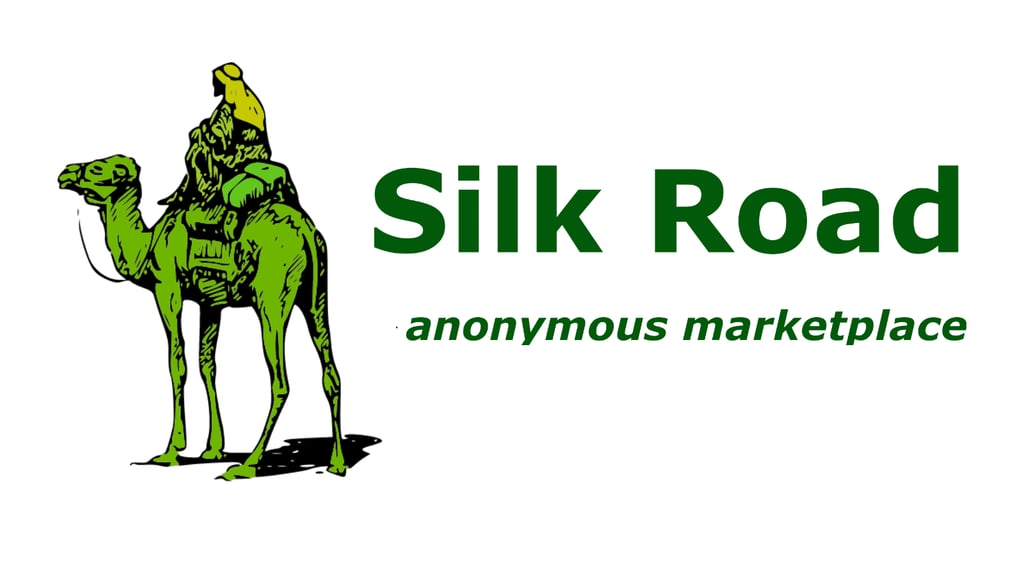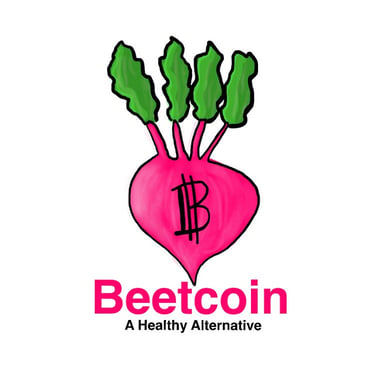Bitcoin Silk Road: A Game Changer in Crypto Use
Explore the Silk Road as Bitcoin's first major use case, highlighting its impact on cryptocurrency adoption and decentralized finance. Discover how this darknet marketplace revolutionized online transactions and its implications for financial freedom, regulation, and societal ethics.
HISTORICAL
2/4/20256 min read


Silk Road - Bitcoin's First Major Use Case
Silk Road, in its initial form, refers to a historical trade route that linked the East and West, facilitating the exchange of goods, ideas, and culture across continents. However, in the context of modern finance and technology, the name "Silk Road" carries a darker, more controversial connotation. It refers to a darknet marketplace that operated between 2011 and 2013, using Bitcoin as its primary currency. This was the first significant use case of Bitcoin on a global scale, propelling the cryptocurrency into mainstream discussions and ultimately influencing its adoption and development
Silk Road is regarded as one of Bitcoin's early and transformative moments, showcasing both the potential and the risks of decentralized digital currencies. In examining the relationship between Bitcoin and Silk Road, we can understand the cryptocurrency’s rise, its role in facilitating transactions that were once unimaginable, and the broader implications for society. Silk Road’s use of Bitcoin helped highlight both the promise of digital currencies for financial freedom, as well as their potential for misuse in illegal activities
Government Bans and Traditional Transaction Methods
Before the rise of Bitcoin and cryptocurrencies, transactions that governments deemed illegal were often conducted using traditional financial systems, albeit with significant restrictions. For example, individuals engaging in the illicit drug trade or other banned activities typically relied on physical cash or a complex network of intermediaries to facilitate transactions. These intermediaries often operated in the shadows, using methods such as wire transfers, money laundering schemes, and hawala networks to move money across borders undetected. These activities were cumbersome, vulnerable to law enforcement interception, and, in many cases, outright illegal
Governments and central banks had substantial control over financial systems and the flow of money, enabling them to regulate, freeze, and track transactions. Traditional financial institutions, such as banks, would not engage in transactions involving illegal goods or services. If a transaction was flagged, authorities could intervene, and individuals could face criminal charges. However, the rise of Bitcoin in the early 2000s introduced a way to sidestep these centralized financial systems entirely, creating a decentralized and anonymous alternative to traditional methods
Immutability and Bitcoin's Revolutionary Potential
One of Bitcoin’s most revolutionary features is its immutability—once a transaction is recorded on the blockchain, it cannot be altered or reversed. This is possible due to the distributed nature of the blockchain, where transactions are verified by miners spread across the globe, preventing any single entity from tampering with the system.
Silk Road took full advantage of this feature, utilizing Bitcoin’s pseudonymous nature and decentralized structure to enable peer-to-peer transactions without the oversight of governments or financial institutions. This proved to be a groundbreaking development in the world of online commerce. Unlike credit card companies or PayPal, which could seize funds or track users' activities, Bitcoin transactions were permanent, transparent, and beyond the reach of conventional legal frameworks
Silk Road’s ability to operate without the oversight of governments and financial institutions marked a turning point for digital currencies. For the first time, individuals could securely exchange goods and services on a global scale without fear of interference from centralized authorities. The use of Bitcoin on Silk Road demonstrated the true potential of cryptocurrency—not just as a speculative asset but as a functional tool for secure, anonymous transactions
Bitcoin's First Major Test
Silk Road was Bitcoin’s first major test, and it was a resounding success—at least from the perspective of its users. During its brief existence, Silk Road became a global marketplace, with millions of dollars in transactions being processed. As the platform grew in popularity, so did Bitcoin’s market capitalization. By 2013, Bitcoin's value had risen dramatically, driven in part by its use on Silk Road. The marketplace quickly became a global hub for buying and selling illegal goods, from drugs to fake IDs, and its widespread use helped introduce Bitcoin to new audiences
At the time, Bitcoin was still in its infancy and had a relatively low market cap. Silk Road, by driving up demand for Bitcoin, was integral in boosting its value and adoption. Bitcoin's price saw significant spikes as users sought to buy the cryptocurrency to make purchases on Silk Road. With the expansion of Silk Road operations and Bitcoin’s growing popularity, the cryptocurrency experienced a surge in both adoption and value. The rise of Bitcoin’s market cap, from just a few dollars per coin in 2011 to over $1,000 by 2013, reflected both the success of Silk Road as a marketplace and the wider potential of Bitcoin as a store of value and medium of exchange
Illegal Goods and the Pros and Cons of Silk Road Transactions
One of the defining characteristics of Silk Road was its ability to facilitate transactions involving illegal goods, particularly drugs. While this posed significant legal and ethical challenges, it also highlighted the key advantages and drawbacks of using Bitcoin and other cryptocurrencies in such markets
Pros:
For users of Silk Road, Bitcoin offered several advantages. Firstly, it allowed for anonymity. Bitcoin transactions do not require the use of personal information, enabling individuals to engage in transactions without fear of being tracked or identified. Secondly, Bitcoin transactions are irreversible. Once a Bitcoin payment is made, there is no way for the buyer or seller to reverse the transaction, reducing the likelihood of fraud
Silk Road also allowed for a wider range of products to be accessed without the oversight or intervention of government regulations. For individuals living in areas where certain substances or items were prohibited, Silk Road provided a way to obtain these goods without the fear of local authorities intervening
Cons:
However, Silk Road also had its drawbacks. As a platform for illegal activity, it operated in a legally gray area, attracting the attention of law enforcement agencies across the world. In 2013, the FBI shut down Silk Road, arresting its founder, Ross Ulbricht. The marketplace’s closure marked the end of an era but also highlighted the challenges in regulating decentralized digital currencies and the use of cryptocurrency in illegal markets
Moreover, the use of cryptocurrencies like Bitcoin for illegal transactions raises concerns about the potential for misuse in illicit activities beyond Silk Road. While Bitcoin offers privacy, it also provides a shield for criminal activity that can have devastating societal impacts, such as the facilitation of human trafficking or the proliferation of cybercrime
The War on Drugs and Natural Substances
Silk Road's operation highlighted a larger issue—the War on Drugs and its impact on individuals' access to natural substances that have co-evolved with humans for thousands of years. Many of the substances sold on Silk Road, such as cannabis or psilocybin mushrooms, have long been used for medicinal and spiritual purposes. Critics argue that the criminalization of these substances has led to unnecessary harm, both by criminalizing people who use them and by blocking access to potentially life-enhancing or therapeutic substances
In the case of cannabis, for example, many argue that its prohibition has caused more harm than good. Legalization advocates point to its medical uses in treating conditions such as chronic pain, PTSD, and epilepsy. Silk Road allowed individuals to access these substances in a relatively safe and anonymous manner, bypassing the legal restrictions placed by governments. This ability to access previously restricted natural substances raised important questions about the ethics of drug prohibition and the role of government in regulating personal freedoms
Access to Life-Saving Medication in imperfect systems
One of the more controversial aspects of Silk Road was the sale of prescription drugs, including life-saving medications. In the United States, the high cost of healthcare has led many individuals to seek alternative ways to obtain prescription drugs, including insulin. The astronomical prices of insulin and other essential medications have caused a significant public health crisis, with people resorting to the dark web to obtain medications they can’t afford through traditional channels
The existence of Silk Road provided an avenue for people to acquire life-saving medication at a fraction of the cost, albeit through illegal means. While the ethical implications of using such a platform to access prescription drugs are complex, the underlying issue of the unaffordability of essential healthcare remains a persistent problem in the United States
The Cons of Silk Road and Cryptocurrencies
While Silk Road demonstrated the potential of Bitcoin as a decentralized and immutable currency, it also exposed the risks of using cryptocurrency for illegal transactions. The anonymity provided by Bitcoin enabled Silk Road’s illegal activities, leading to its eventual takedown by law enforcement. Furthermore, cryptocurrencies’ volatility, lack of regulation, and association with illicit transactions continue to raise concerns
Silk Road also drew attention to the broader issue of the dark web and the potential for cryptocurrencies to facilitate criminal activities, including money laundering, arms trafficking, and cybercrime. These activities highlight the dangers of using decentralized systems for illicit purposes, making it clear that while cryptocurrencies offer privacy and security, they also come with risks that must be addressed through regulation and oversight
Conclusion
Silk Road was a watershed moment in the history of Bitcoin, demonstrating both the potential and the dangers of cryptocurrency. As Bitcoin’s first major use case, it played a crucial role in the currency’s rise, introducing millions of people to the possibilities of decentralized finance. However, its role in facilitating the trade of illegal goods also highlighted the challenges of regulating digital currencies and the need for more robust oversight
The lessons learned from Silk Road continue to shape the ongoing debate around cryptocurrency regulation and its role in society. While cryptocurrencies like Bitcoin offer tremendous potential for financial freedom, they also raise important ethical, legal, and societal questions that must be addressed as the technology continues to evolve
Get in Touch
We'd love to hear from you! Reach out for questions, feedback or other enquiries
Reach
info@bitesizedblockchain.com
Bite Sized is not affiliated with these brands in any way





Grab your daily web 3 byte
